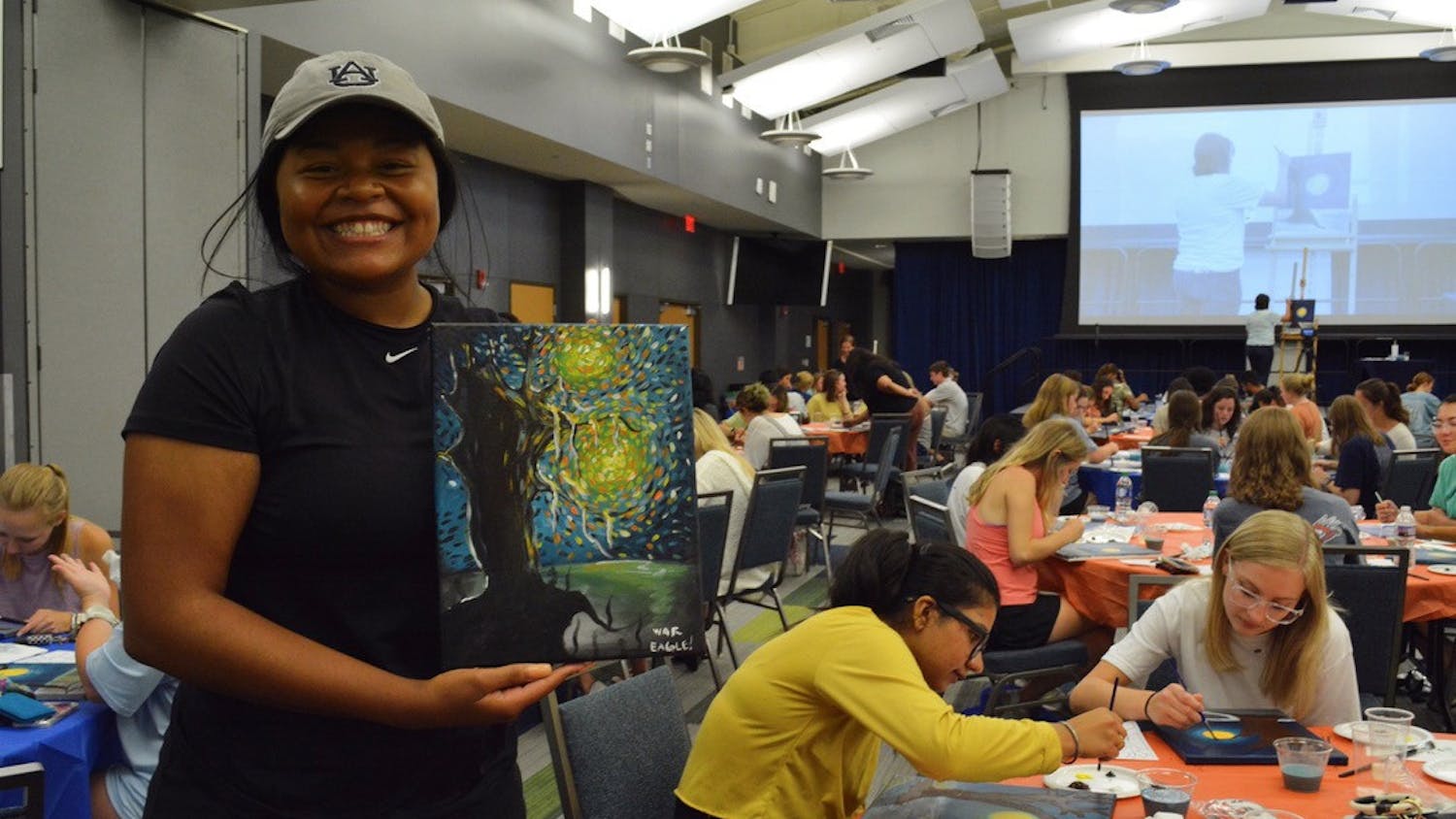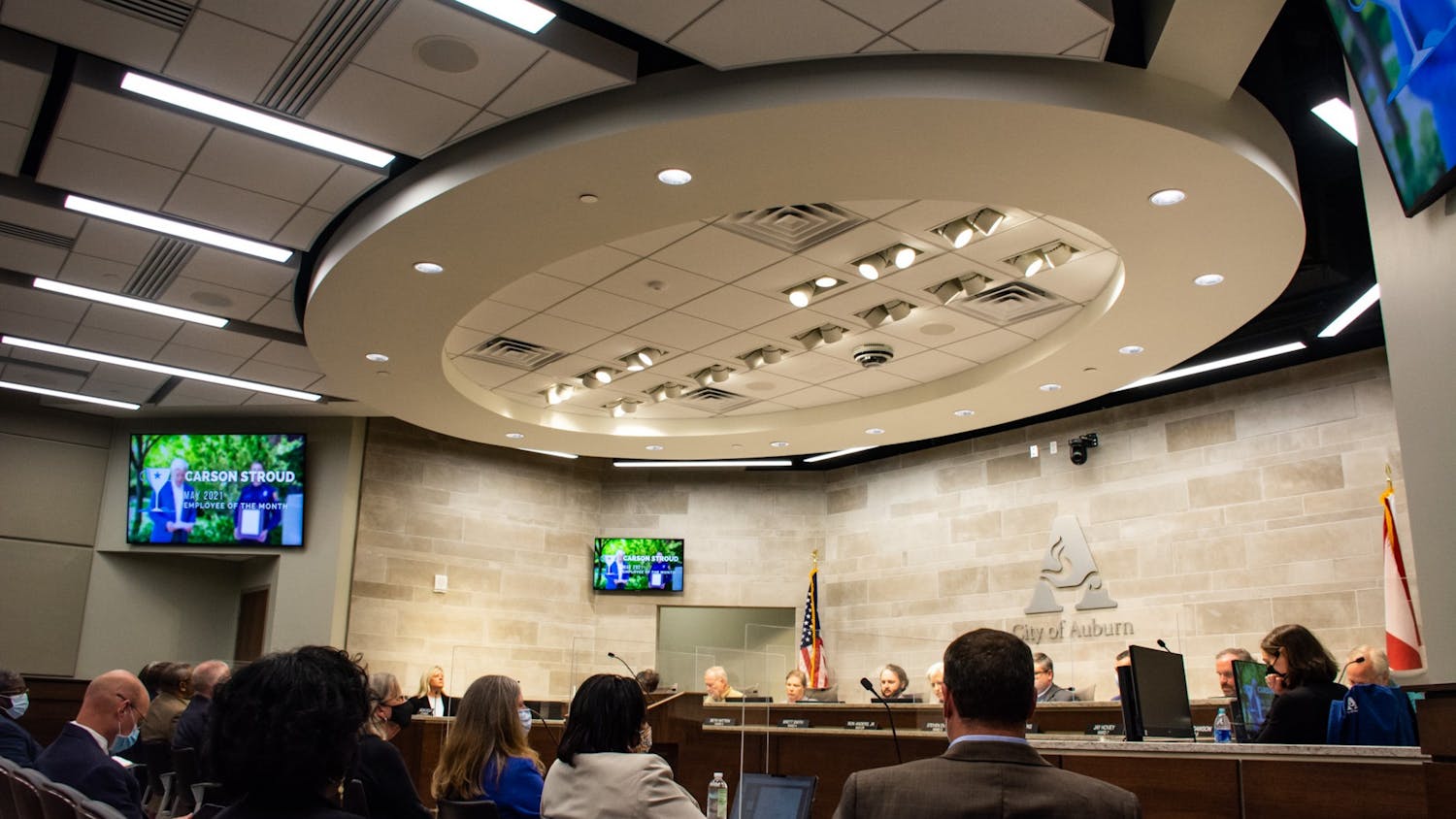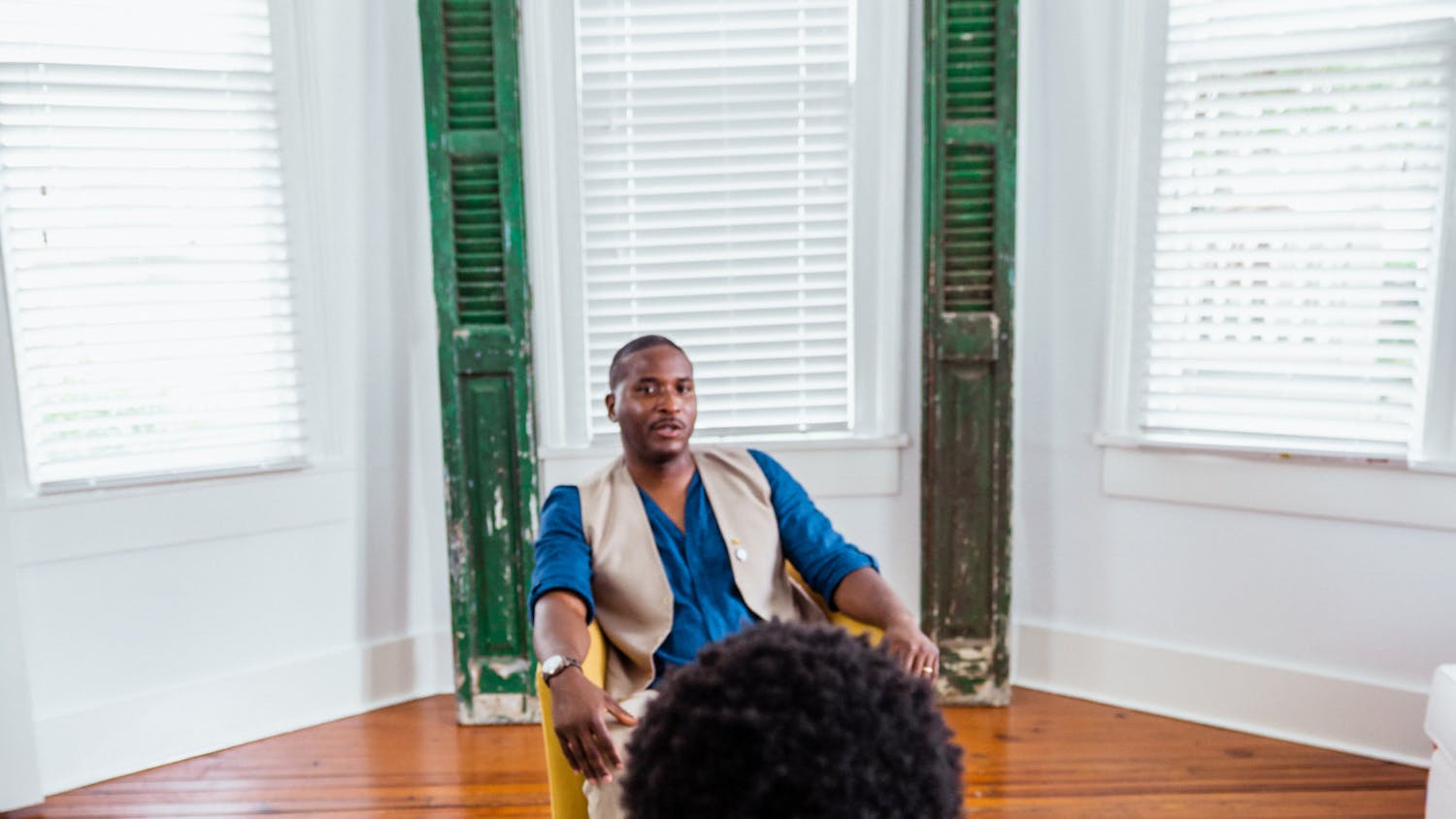The film “Embers,” deals with an interesting subject: What happens when the whole world, with the exception of two individuals, wake up each morning not knowing who they are, where they are, what they are doing or why they are doing it.
The film shows the aftermath of a global epidemic that effectively wipes out short-term and long-term memory.
Named for being the partially forgotten form of remember (lose the rem-), “Embers” features five different interwoven stories: a pair of lovers who have forgotten each other every morning upon waking, a little boy who wanders around alone trying to find a home, an angry young man trying to survive, a professor working to restore memory and a girl who grows restless in the quarantined bunker she shares with her father.
Each story shows a different side of memory and what its presence or absence means to humanity.
Writers Charles Spano and Claire Carré, who also directed and edited the film, screened “Embers” on Thursday, March 24, at the Jule Collins Smith Museum of Fine Art as part of the Southern Circuit Tour.
Q: When did you know this was the film that you wanted to make? Because I know you said you were writing one before and kind of decided that was not what you wanted to do. So what about this one made it something you know you wanted to pursue?
CC: I think part of it was that because it has the multiple stories, it seemed possible to make the film ourselves because we could start … with shooting part of it and then go from there. I think that made it more approachable in a certain way. I also think just like it was probably five years since we had written the other script, so I think we both improved as writers and filmmakers during that time. And I think it had been percolating for years, and then it came together.
Q: Was there any character storyline that you liked more than the others?
CC: I liked them all for different reasons. The lover’s story and the bunker story are probably the strongest stories I think. They have the most narrative development, I feel like, and we spent the most time on screen with those characters.
CS: Yeah, and I think those two stories take a journey that the audience members put themselves in the position of the lovers or imagine they are in Miranda’s position … so I think those are the most compelling stories. My favorite is the violent character that we call Chaos. He always elicits very strong responses from the people who watch. I like him the best because of that moment when he is standing on the parking garage, and he is faced with this decision of whether to jump off or whether to keep on going.
CC: One thing I think was interesting was that the first draft of the script didn’t have the bunker story in it. It was just that all the characters in the world were without memory, and then after we wrote that and then read it back, we were like, ‘We need some characters that know what is going on, that aren’t affected, so that they can be a counterpoint to the other stories…’
Q: Just on a personal level, do you think you would be the girl who had to leave or more the one who would want to stay?
CC: I’ve been asked that before, and I really don’t know. I think … while it’s an interesting story to me … it is a real conflict because ... you have to choose between having your past and your memories and everything in your life up until that moment, but really no experiences. She’s just trapped in this bunker with her dad and then her dad is going to die, and she’s just going to be alone with her memories versus forgetting her past and all those precious memories ... and having new experiences even though she can’t remember them. So it’s kind of like freedom versus memory a little bit. And I really think it kind of depends on the day for me, because ... I want new experiences, but I want to remember my past experiences … It’s really hard to choose.
CS: I think that Miranda is making a really gutsy decision. She may be making a foolhardy decision also. I’m with her. I think she makes the right decision for her.
CC: What about for you?
CS: I don’t know. It’s hard to think about. It’s hard to answer. Even watching and putting yourself in her position, there are just so many variables ... I think most people would want to leave at the end like Miranda but would actually stay given the situation.
CC: I mean, bunker’s not that bad. It’s pretty nice.
CS: The bunker’s pretty posh.
Q: In the whole process of writing and editing and filming, were there any parts that you liked more than the others?
CS: I don’t know. They were all so hard while we were doing them. Writing is fun …Writing is the phase of making a film when it can become anything and your only constraints are your imagination.
CC: I think for me being on the set is the part I like the most and maybe also the least … A lot of logistics of it are really stressful, and everyone is looking to you to have answers. You know you’re the director so there is a lot of pressure on you. But in the moment, on the set looking at my monitor and seeing the actors doing a scene and experiencing it happening for the first time was my favorite moment. It’s really magical … You are in this space with people saying the stuff that you were just like drinking tea and in your pajamas and came up with … It’s really cool.
CS: It is really exciting to see ideas you thought of, entire people the you invented and moments that you made up come to life before your eyes.
Q: And do you want to make another feature film?
CC: Yes.
CS: Yes.
CC: It hasn’t turned us off. I feel like there is a big divide between never having made a film and making a film, but the gap between making one film and making a second film doesn’t really seem that hard.
CS: It seems like a much smaller step. But you know, it takes a particular kind of personality and attitude to want to make a film because it can be very hard and spend all your money ... it can be really challenging for something that is less than an hour and a half. But at their best, films can make people think about their lives and ask questions about what is important to them in their lives, and I think that’s a neat thing to be able to ... show a group of people something and have them walk away thinking about like, ‘What’s important to me about memory, and what do I value?’
CC: And who would I be if I didn’t have my past that’s built me up to this point? If that just went away ... is there some core me-ness?
CS: We also hope that people watch this movie and see that even without memory or with a memory that is not functioning well that there is still value to experience that is just happening in a moment. That life has meaning even if you can’t remember it the next day and ... this is a sci-fi movie, but I think that’s something that affects people in their lives.
Do you like this story? The Plainsman doesn't accept money from tuition or student fees, and we don't charge a subscription fee. But you can donate to support The Plainsman.




